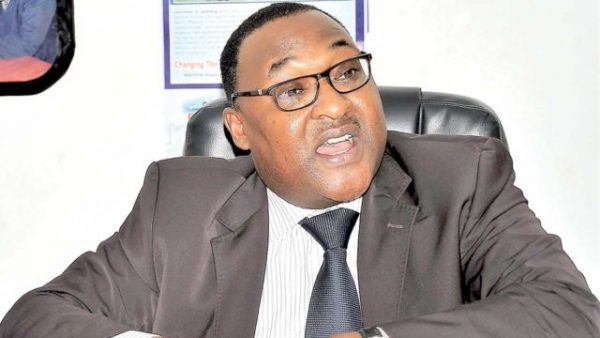Transport Sector: Tips For Reform

Theoretical analysis and perusal of germane issues affecting the economic and social life of a nation may not be enough without an attendant political will action from the government to pursue the core of the recommendations. Arrived at by experts at any forum organised for such.
The transport sector in Nigeria has dwelt too long in the hands of private individuals without necessary government attention hence the gradual demise of the sector making it susceptible to gradual demise of the sector.
Despite the potentials in the sector, little or nothing has been achieved as a result of the lack of firm grip of government on it.
The transport sector is however vital in the scheme of things in any nation especially one that has futuristic plan for its economic growth.
It is the channel that opens a nation to the rest of the world. It could be through road, air, water or rail.
In a recent brainstorming by highly placed academics from different higher institutions of learning across the country, several recommendations were raised in the communique issued at the end of the two day conference tagged: “Transforming The Transport Sector ”
If some of the recommendations raised at the conference if aptly executed will go a long way to solving some of the age-long problems associated with road sector in the country.
But the usual let down has always been the lackadaisical attitude of government towards bringing such suggestions into practice, instead, they are overshadowed by political interest which may be distant from anything that could solve the problems on the table.
After two days of academic retreat on the subject, there was unanimous agreement on tips that can help salvage the sector from further decline from what already obtains.
Among those that took part in the sessions towards solving the problem of the transport sector include Prof. Innocent Ogude, the National President of Institute of Transport Administration (IoTA) Nigeria.
He said that the transport sector has remained what it is today because of government’s attitude towards the sector adding that until the government show a toward attitude towards it, no significant feat may be achieved there from.
He maintained that except the government resolved to step a positive step in the direction, the nation may NOT witness any significant change from what it hitherto was.
He is one of the strong advocates of the passage of the National Transport Commission Bill which is with the National Assembly.
Daramola Adebukola Yewande Research Fellow, Nigerian Institute of Social & Economic Research, Ibadan, speaking on the topic: Air Transport Deregulation: “Effects on Network Structure and Passenger Movement in Nigeria,” said that deregulation of entry, route assignments and fares in the domestic airline industry was expected to engender competition among airlines and consequently increase the quality of services provided to consumers. He added that as airlines strive to realize the ultimate dividend, the operational network structure had been influenced substantially, thus manifesting distinct spatial effects, following the operations of profit oriented private airlines.
“Following the disadvantages of stagnation and diminished initiatives which had come to be associated with Nigeria’s erstwhile national carrier, deregulation allowed private airlines into scheduled domestic air services.” He stated that in the airline industry, deregulation was not likely to be total as government still needs to oversee its affairs for smooth operations.
Adebayo Oluwasegun of the Department of Geography & Regional Planning, Olabisi Onabanjo University, Ago-Iwoye, Ogun State, while commenting said that Road damages and deterioration, its related consequences on the economy of this nation call for a novel technology with full potential and capacity that could effectively handle spatially referenced data.
He said the study explored the potentials of Geographic Information System (GIS) in data capture, processing and analysis to produce a GIS-based Road Maintenance Model using Ikeja Road Network in Lagos, Nigeria as a case study.
The following are the recommendations that were reached at the end of the conference:
• There should be economic regulations across all modes in the transport industry.
• Airlines, shipping lines and operators of urban transportation should be consolidated into viable firms in their respective sub-sectors, for better resources management and usage to ensure efficient operations to reduce costs, increase throughput and better standard of living.
• Nigeria should create the enabling environment for the realization of the aspiration of becoming a transportation hub for the West and Central African sub-region and ultimately for Africa as whole.
• Government should fully implement the Cabotage Act 2003 in order to integrate coastal shipping and inland waterways transportation.
• Concessionaires in the transport sector should invest more on better facilities and staff development that will increase the efficiency of their respective outfits in order to improve turnaround time and throughput.
• There is need for the Government to prone down the number of agencies in the ports and along the highways and inland waterways.
• Federal Airport Authority of Nigeria, the only monopoly left in the transport industry should be unbundled to enable the aviation industry to operate at the expected optimal level needed for the total growth of the Nigerian economy.
• Government should conclude on the following bills: National Transport Commission Bill; Ports and Harbour Authority Bill; Inland Waterways Authority Bill; National Railway Authority Bill; Federal Roads Authority Bill and National Roads Fund Bill, to pave way for public private partnership in order to improve the overall efficiency of the entire sector and achieve an integrated transport system.
• To improve safety on the roads and inland waterways, there should be more patrols as the corridors with more presence of operatives had better levels of compliance to safety policies and reduced crime rates.
• Electronic data gathering and intelligent transport system should be encouraged to aid accurate real time data collection which is an essential tool in transport planning as we strive to transform the transport sector in Nigeria.
However, as good as the recommendations seem, the fear still remains that the government may not take them into considerations let alone making use of them.







